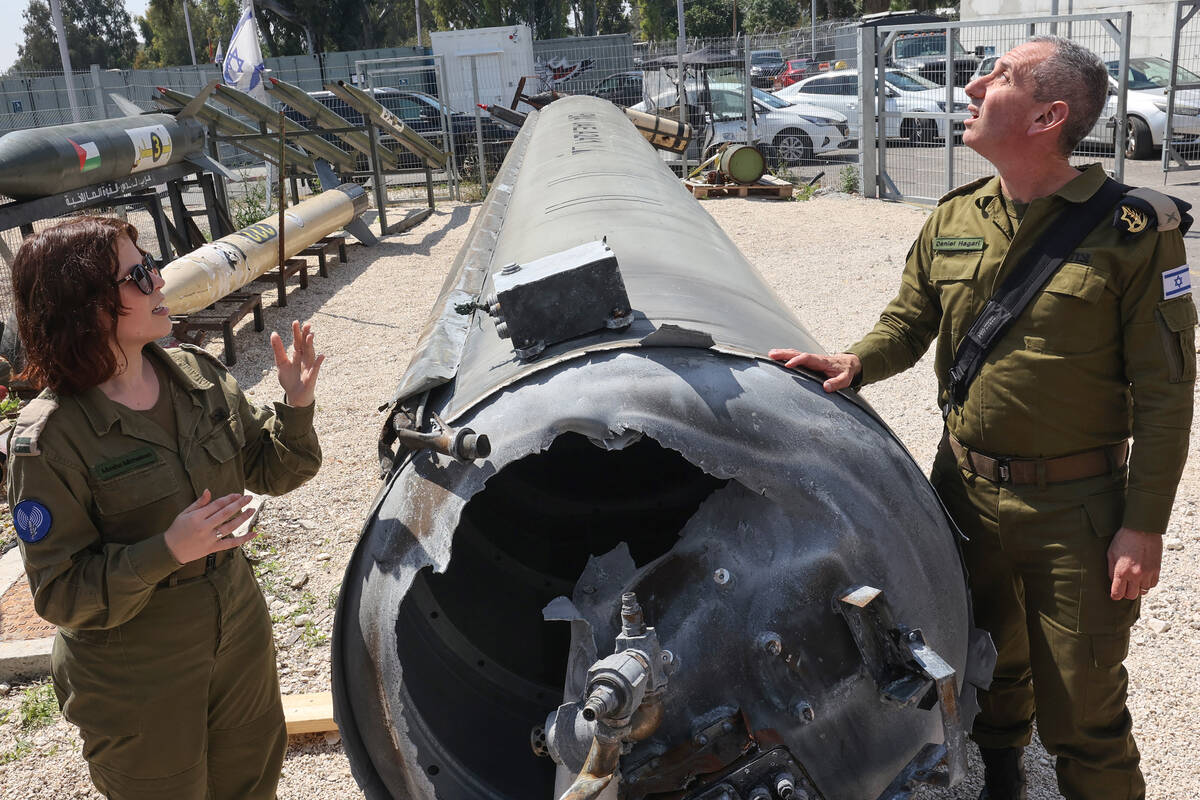Saudis, UAE warn of war dangers as Israel-Iran tensions boil
Saudi Arabia and the United Arab Emirates called for maximum “self-restraint” in the Middle East to spare the region “from the dangers of war and its dire consequences” in a frank joint statement Wednesday.
The comments came after a call between Saudi Arabia’s Crown Prince Mohammed Bin Salman and UAE President Mohammed Bin Zayed Al Nahyan, as tensions escalate following Iran’s missile and drone strikes on Israel on Saturday night.
Israel is weighing a response to what was the first attack on the Jewish state from Iranian soil.
The leaders of Saudi Arabia and the UAE discussed developments in the Middle East and the dangerous repercussions on security and stability, the UAE’s state-run WAM news agency reported. The call was initiated by the Emirati leader, Saudi Arabia’s state-run news agency SPA said.
The UAE has formal diplomatic relations with Israel, while Saudi Arabia had been in U.S.-backed talks over the normalization of ties, though those have been complicated by the war in Gaza.
The U.S., Western allies and Arab states have urged Israel to refrain from a response that would engulf the region in a full-blown conflict. The Saudi crown prince also received a phone call from the ruler of Qatar and discussed the military escalation.
The intensifying tit-for-tat between Iran and Israel has put the entire region on edge, and Gulf leaders may see this as a moment to put aside differences to confront common threats and challenges.
Saudi Arabia and the UAE have clashed in the past over a number of issues, including how to deal with Iran, ending the decade-long war in Yemen and economic and political leadership in the region.
Saudi Arabia and the UAE are particularly worried about the situation in Jordan. The government there says it’s caught between an Israeli leadership that it has described as a threat to regional peace, and forces in Iran and countries allied with Tehran determined to exploit the ongoing war in Gaza to expand their influence and reach, including in Jordan itself.
Amman has been rattled over the past few weeks by a series of developments. On Sunday, Iran state media accused it of aiding Israel by shooting down some of the missiles and drones launched by Tehran. Jordan retorted that it had to act because some of them flew over its territory.
Months of protests outside the Israeli embassy in Amman have grown increasingly militant and pro-Hamas in the past few weeks. And following Israel’s attack on the Iranian consulate in Damascus, an Iran-backed Iraqi militia leader vowed to flood Jordan with weapons and to march on Israel.
These threats triggered calls by the Saudi crown prince and UAE leader to Jordan’s King Abdullah II to reaffirm their commitment to Jordan’s defense and security.
Both Saudi Arabia and the UAE, who are bound to Jordan by familial and tribal ties, see the country as pivotal to their own national security and part of their geo-strategic depth.
Jordan borders on northwest Saudi Arabia, where Prince Mohammed has launched some of his most ambitious and costly projects linked to his Vision 2030 economic diversification plan. While both have mended diplomatic ties with Iran, they remain extremely wary of Tehran.
A report earlier this month by the Riyadh-based International Institute for Iranian Studies said Iran was “seeking a foothold in Jordan” in order to completely “encircle Israel” and “undermine regional actors” like Abu Dhabi and Riyadh.
The region’s heightened tensions also fuel concerns about security in its waterways, all of which are vital sea routes for global energy and commercial supplies.
An Israel-linked cargo ship that was seized by the Islamic Revolutionary Guard Corps in the run-up to Saturday’s attack is still being held by Iran on allegations it was violating maritime regulations.
Earlier on Wednesday, Iran’s navy said it would provide a military escort, led by one of its largest warships, for Iranian trade vessels traveling from the Gulf of Aden to the Red Sea.






















